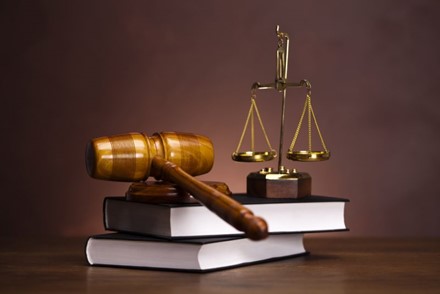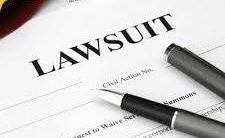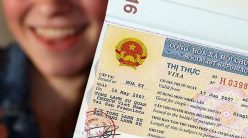For the first time, the Civil Code recognized the effect of “public credit”. Accordingly, the property has been registered at a competent state agency, then transferred by another civil transaction to a bona fide third party who, based on such registration, performs the transaction. then the transaction with the third party is not void.
Around the provisions of Article 133 of the Civil Code 2015 on “Protecting the interests of bona fide third parties when civil transactions are invalid ” raises research questions about the conditions for recognizing the validity of “publicity” , determining determine the subject at fault and the obligation to return and compensate in the protection of an honest third party when the civil transaction is invalid.

Image for illustration purposes only (Internet source)
Protect the rights of an honest third party
Article 258 and Clause 2, Article 138 of the 2005 Civil Code record the case where the true owner does not have the right to sue for property from a bona fide third party, or in other words, a bona fide third party is recognized as the rightful owner. law in the case: “A bona fide third party receives this property through auction or transaction with a person who, according to a judgment or decision of a competent state agency, is the owner of the property but then this person is not the owner of the property because the judgment or decision has been annulled or corrected”.
With this provision, except for the two exceptions mentioned above, the Civil Code 2005 has invalidated transactions with a bona fide third party when the object of the transaction is a property that must be registered without considering that when the third party Immediately after the transaction is established, the established asset has been registered or not. In the case of property subject to declaration and registration for issuance of a Certificate of ownership or use in the name of one or several persons, the person named in the ownership papers shall transfer, mortgage, guarantee, etc. the third party in good faith cannot know or it is very difficult to know whether the origin of the establishment of such property is lawful when they have established the transaction based on the property registered at a competent state agency. The absolute protection of the owner and the principled protection of the third party in the 2005 Civil Code leads to the fact that in case the original transaction is declared invalid , the transaction with the third party is also declared invalid. , the third party must return the property to the owner and sue the party that has entered into a transaction with him to claim damages. Thus, according to the provisions of the Civil Code 2005, if it is not in the two exceptional cases specified in Clause 2, Article 138, the subject must return the property that is the subject of the invalid transaction to the owner who is third wheel. The 2005 Civil Code grants the right to a bona fide third party in an invalid transaction to demand compensation from the person who has established the transaction with him. This provision seems to protect the fairness of the righteous third party. However, in practice, the recognition in the 2005 Civil Code of a righteous third person who is entitled to claim compensation from the person who has transferred to him or her for damage is difficult to enforce in order to receive compensation. Because, in many cases, it is not possible to find the person who transacted with them to sue.
To overcome the above shortcomings, the Civil Code 2015 added an exception in recognizing the validity of transactions with a bona fide third party:
In case a civil transaction is invalid but the property has been registered at a competent state agency, then it is transferred by another civil transaction to a bona fide third party who, based on the registration sign that but establish and perform a transaction, that transaction will not be invalidated. (Clause 2, Article 133 of the 2015 Civil Code)
In this spirit, Article 168 of the 2015 Civil Code continues to affirm: “The owner of the movable property must register the ownership right or the immovable property from the rightful possessor, except for the case specified in Clause 2 of this Article. 133 of the Civil Code”. Thus, according to the 2015 Civil Code, as long as the property has been registered for ownership at a competent authority and then transferred to a third party, when the initial transaction is declared invalid, the transaction with the third party will be required. three goodwill is still in effect.
It can be said that with the revised provisions in the Civil Code in 2015, an effective legal mechanism has been created to protect the rights and interests of bona fide third parties, goodwill parties and weak parties in civil relations. . This provision is especially meaningful in the context that the 2013 Constitution has set many new requirements in protecting and ensuring the implementation of human rights and citizens’ rights in Vietnam.
According to the provisions of Article 133 of the Civil Code 2015, the legitimate rights and interests of a bona fide third party are protected more effectively, because the obligation to return the property and compensate the owner for damage belongs to the person who committed the damage. enter into a transaction with an honest third party. However, when the law is implemented in practice, the handling of transaction consequences is invalid and the obligation to refund and compensation is determined to ensure the legitimate rights and interests of the real owner. still poses many problems to be studied and discussed so that competent state agencies can guide uniform application.
The subject is obliged to return and compensate the owner
According to the provisions of the Civil Code in 2005, the person who is obliged to return the property to the owner is a bona fide third party when the initial transaction and the transaction with a bona fide third party are both declared invalid (except in the following cases: exceptions recorded in Article 258 and Clause 2, Article 138 of the 2005 Civil Code). When the Civil Code 2015 recognizes the effect of a transaction with a bona fide third party established after the property has been registered for ownership, the obligation to return the property to the owner has passed to the person who established the transaction. with third parties and related entities. Clause 3, Article 133 of the Civil Code 2015 gives the right to initiate a lawsuit to protect the interests of the owner as follows: “ The owner has no right to reclaim the property from an honest third party if the civil transaction with this person is not violated. invalidated according to the provisions of Clause 2 of this Article, but has the right to initiate a lawsuit demanding that the party at fault leading to the transaction established with a third party pay reasonable expenses and compensate for damage.
The problem to be determined here is who is the subject of the error leading to the transaction being established with the third party. In cases where an agency or organization has the authority to notarize or authenticate illegal transactions, the People’s Committee shall issue the certificate of land use right, and the competent state agency shall issue the ownership papers. Illegally granted, illegally granted property, procedures, etc., is it considered to be at fault leading to the establishment of transactions with a third party? On the other hand, according to the new provisions of the Civil Code in 2015, the fact that the property has been registered for ownership is one of the important grounds for recognizing the validity of transactions with a bona fide third party, so it is also necessary to consider consider the responsibility of the competent authority in the registration of property ownership when the registration procedures are not in accordance with the procedures prescribed by law.
In our opinion, the subject of the error recorded in Clause 3, Article 133 of the Civil Code 2015 is quite “open”, not framed in the subject participating in the transaction but also in the subjects related to the transaction. In case there is a basis to determine that organizations or competent state agencies do not follow the correct order and procedures in the registration of property ownership, they must also be responsible for compensating for any damage caused to them. of the original owner, because the registered property is the basis for the recognition of the transaction with a third party. In case the owner claims compensation, the regulations on compensation for damage caused by the person of the legal entity shall apply to determine the responsibility of the agency, notarization and authentication organization and the agency competent to register. sign ownership of the property. Determining the compensation liability of the subjects in this case will strengthen the responsibility of organizations and competent state agencies, limit the case of improper registration, leading to damage to customers. property owner, and will also effectively protect the owner’s rights and interests when recognizing a transaction with a third party, reducing damage in the event that the obligor (the party that has entered into a transaction with a third party). third party) inability to compensate.
This can be assessed as a breakthrough solution to overcome the shortcomings and weaknesses in management practice, especially the current housing and land management of competent state agencies. In order to create a legal corridor and effectively implement the provisions of the Civil Code 2015, ensuring synchronization with other specialized laws, in the coming time, when implementing the amendment and supplement of the Law on Compensation Liability The State’s responsibility to compensate the State for the at-fault subjects is the official duty executor caused in administrative management activities, proceedings, judgment enforcement, etc. in protected civil transactions. protection according to the “publicity effect” was recognized on the legal mechanism to protect civil rights in the Civil Code 2015.
Another problem is that when there are many parties at fault leading to the transaction with a third party causing damage to the owner, the liability for compensation is separate liability according to the degree of fault or joint liability. The 2015 Civil Code does not stipulate fault and fault level, the basis for determining compensation liability according to the degree of fault. Therefore, the determination of fault and liability for damages of the subjects in this case must have an objective assessment, based on the nature of each case. In particular, it is not possible to determine only the liability of the person who has established a transaction with a third party, but excludes the responsibility of other subjects.
Return value and slippage problem
Clause 3, Article 133 of the Civil Code 2015 stipulates that the owner has the right to initiate a lawsuit requesting that the person who was at fault leading to the establishment of a transaction with a third party must “repay reasonable expenses and compensate for damage”. The Civil Code 2015 does not stipulate what “reasonable expenses” are and what amounts are considered “damages”. Thus, when the initial civil transaction is declared invalid, it must return to the owner the profit earned from establishing the transaction with a third party or return what was received according to the principle of handling. Legal consequences of invalid civil transactions? According to the provisions of Article 131 of the Civil Code 2015: “When a civil transaction is invalidated, the parties shall restore the original state and return to each other what they have received. In case it is not possible to return in kind, the monetary value for refund will be the case . In the case of a valid civil transaction with a third party, when the original transaction is declared invalid, the parties cannot return to each other what they have received, but can only be refunded in cash. However, Article 131 of the Civil Code 2015 does not stipulate that the cash value to be refunded is the value at the time the parties establish the transaction or the value of the property at the time the transaction is declared invalid.
Usually most of the returned property is not always the same value as at the time of delivery. Up to now, the issue of price slippage has only been guided in Resolution No. 01/2003/NQ-HDTP dated April 16, 2003 of the Council of Judges of the Supreme People’s Court “Guiding on the application of law in settlement of disputes”. settle certain types of civil, marriage and family disputes” but only applies to invalid housing transactions. According to the guidance of the Judicial Council, the price difference is considered damage, and the party who is at fault for making the contract void must compensate in proportion to the amount paid. However, in fact, the asset value can be changed due to many different reasons such as natural wear and tear, human impact or market economic laws. Therefore, in the case of considering the obligation to return when the initial civil transaction is invalid, determining the value of the property, and the obligation to repay, we must carefully consider these factors, especially the increase and decrease prices to ensure fairness. On the other hand, the property that is the subject of civil transactions is very diverse, the guidance of the Judges’ Council is only within the scope of housing transactions, so it is not possible to cover all other properties when dealing with the consequences of the transaction. invalid translation.
We believe that, when the Court declares the initial transaction invalid and recognizes the transaction with a bona fide third party, the parties to the original transaction must return to each other what they have received, the party that establishes the transaction with a bona fide third party must return to the owner the value of the property calculated at the time of the transaction. The difference between the value of the property at the time of initial transaction and the time of return is considered damage and not within the scope of reimbursement. In case there is a price difference that causes damage to the original owner, the parties at fault leading to the establishment of a transaction with a third party must compensate the original owner.
Determining the obligation to refund and compensate for loss when a transaction is void in the event of a price difference is a complicated matter. The Supreme People’s Court should soon issue specific guidelines when applying Articles 131 and 133 of the 2015 Civil Code in order to reach a consensus on adjudication.
The case of protecting the interests of a bona fide third party as prescribed in Clause 2, Article 133 of the 2015 Penal Code
Clause 2, Article 133 of the Civil Code 2015 stipulates that “in case the property must be registered but not yet registered at a competent authority, the transaction will only be recognized when a bona fide third party receives the property through an auction.” price at a competent organization or transaction with a person who, according to a judgment or decision of a competent state agency, is the owner of the property but then this subject is not the owner of the property because of the decision. canceled or corrected”.
According to the above provisions, in case a person is recognized as a property owner according to a judgment or decision of a competent authority, then this person does not register the right to own the property but only based on the copy of the document. If such judgment or decision establishes a transaction with a third party, the transaction with the third party will still be valid even though that judgment or decision is later canceled or modified. However, the problem is that in case the transaction is established with a third party according to the provisions of the law, there must be a Certificate of Property Ownership (1) and that transaction must be notarized. 2), the transactions with the third party mentioned above have violated the form because there is no certificate, so they are not qualified to notarize and authenticate the contract. In this case, we must base on Clause 2, Article 133 to recognize the transaction with a bona fide third party or base on Article 129 of the Civil Code 2015 to handle the invalid transaction due to non-compliance with regulations on formality. .
In our opinion, in this case, if the transaction with a bona fide third party does not comply with the statutory form, it must still be based on Article 129 of the Civil Code 2015 to recognize or not recognize the transaction with the third party. righteous third. Thus, it will ensure fairness, avoiding the case that the person who has established a transaction with a third party discovers the risk that the transaction with the original owner may be declared invalid, so he transfers the property to the third party to evade the obligation to return the property to the owner.
Another legal issue arising from the words of Clause 2, Article 133 of the Civil Code 2015 is the failure to specify which judgment or decision the recognition of property ownership is. There may be cases where the first-instance judgment has not yet taken legal effect or an administrative decision recognizes property ownership for a subject, and then the final appeal judgment or complaint settlement decision does not recognize it. ownership of that subject. In fact, there have been cases where the subject of ownership recognition has entered into a transaction with a third party when the case is being resolved according to appellate procedures, or is settling a complaint. Therefore, in order to avoid controversies over the wording of the law without looking at the legal nature of the legally effective judgment or decision, we believe that the Supreme People’s Court when guiding the application of the law The consensus in the adjudication work should clearly state that the judgment or decision of the agency competent to recognize ownership under Clause 2, Article 133 of the Civil Code 2015 must be a legally effective judgment or decision.
Source: According to kiemsat.vn
For support and advice on Business, Investment, Intellectual Property, Tax, etc. issues, in the best way, please contact us with the following information:
DHP LAW
Address: L4-09.OT06 Landmark 4 Building Vinhomes Central Park, 720A Dien Bien Phu, Ward 22, Binh Thanh District, Ho Chi Minh City
Hotline: 0986.938.627Zalo, Viber, Line: 0986.938.627Facebook: facebook.com/DHPLAW








